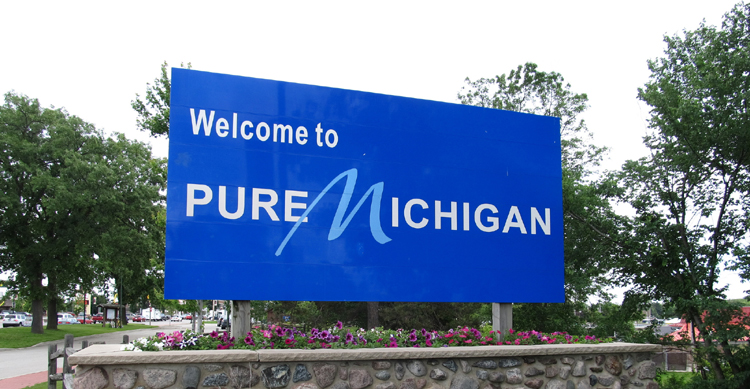New online casino and poker legislation has been introduced in the Michigan State Senate, almost five years after the Unlawful Internet Gambling Enforcement Act of 2006 (UIGEA) went into effect. The UIGEA prohibited online gambling sites from performing transactions with financial institutions in the U.S., thus shutting down online gaming activity.
On Friday, Senator Mike Kowall was joined by four other Michigan state senators in introducing the Lawful Internet Gaming Act (SB 889), a bill that would regulate and legalize online gambling. The bill’s purpose is to “protect residents of this state who wager on games of chance and skill through the internet and to capture revenues and create jobs generated from internet gaming.”
In order to avoid conflicts with the federal Professional and Amateur Sports Protection Act (PASPA) enacted in 1991, sports betting will not be among the list of legally permitted online games, according to CalvinAyre. Some of the highlights of SB 889 include, a 10% tax on gross gaming revenue; a $5 million licensing fee, which includes an upfront, nonrefundable $100,000 fee; tribal casinos, as well as state-licensed private casino operators, can apply for a license, and the state would only issue eight online gambling licenses. In order to qualify, tribes would have to waive their sovereign immunity and the relevant taxes and fees would have to be paid. While vendor licenses for online gambling technology would be good for five-year terms, it doesn’t appear that SB 889 specifically states who might qualify for a vendor license, which could possibly open the door for interstate and international compacting.
The bill states, “Notwithstanding anything else in this act, a wager may be accepted from an individual who is not physically present in this state if the division determines that the wager is not inconsistent with federal law or the law of the jurisdiction, including any foreign nation, in which the individual is located or that the wagering is conducted under a multijurisdictional agreement to which this state is a party that is not inconsistent with federal law.”
Michigan is one of only three states were some form of online lottery sales is allowed, and only one of two that permits instant win online games, so some experience with online gambling already exists in Michigan pols. That could help move the measure along in the legislature.



